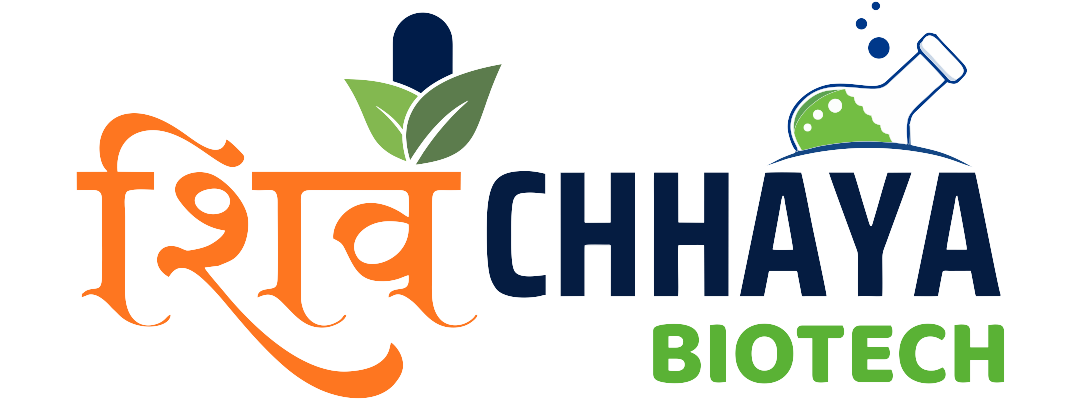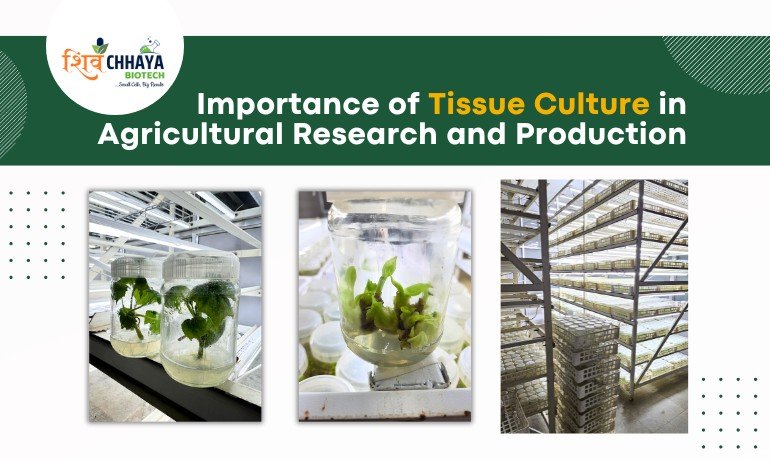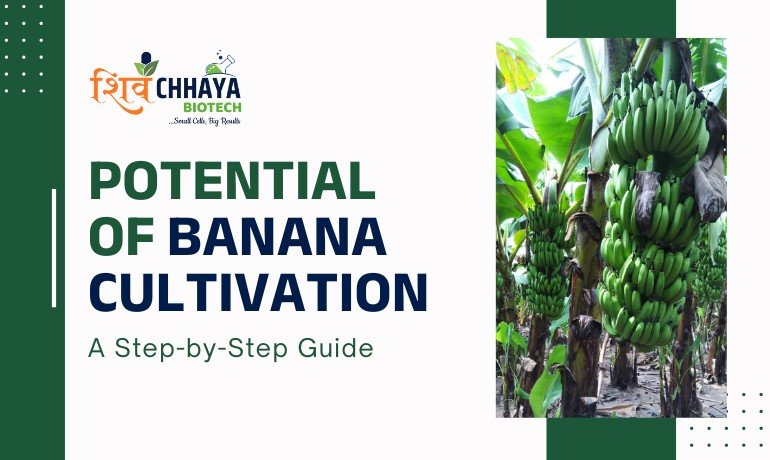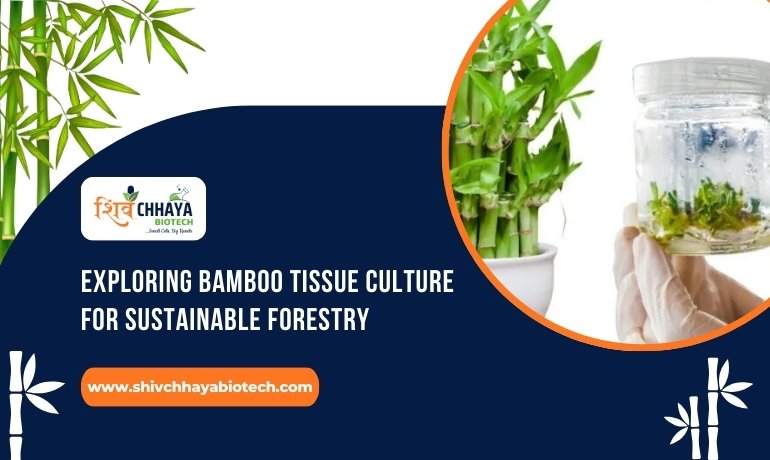The technique of Tissue culture plants has brought about significant progress in agricultural innovation by offering a range of benefits that have transformed traditional farming methods. This advanced technique has gained significant attention recently due to its profound impact on crop production, genetic conservation, and disease management.
Let’s delve into the importance of tissue culture in agricultural research and production.
Enhanced Crop Yields
Tissue culture techniques allow for the rapid multiplication of plants with desirable traits, leading to increased crop yields. Through micropropagation, a single plant cell can give rise to numerous identical copies, ensuring uniformity and consistency in the resulting crops. This not only accelerates the breeding process but also ensures the propagation of high-yielding varieties, thereby bolstering agricultural productivity.
Genetic Conservation
One of the critical aspects of agricultural research is the preservation of genetic diversity within plant species. Tissue culture serves as a powerful tool in this regard, enabling the conservation of rare and endangered plant species. By maintaining genetically identical clones in controlled environments, researchers can safeguard valuable genetic resources from extinction and facilitate their reintroduction into natural habitats.
Disease Management
Diseases pose a significant threat to global food security, causing substantial losses in crop yields each year. Tissue culture offers a proactive approach to disease management by producing disease-free plantlets through sterilization techniques. By starting with healthy plant tissues, researchers can eliminate pathogens and viruses, ensuring the propagation of disease-resistant crops. This not only minimizes crop losses but also reduces the reliance on chemical pesticides, promoting sustainable agricultural practices.
Adaptability to Environmental Stress
Climate change and environmental stressors present formidable challenges to agricultural sustainability. Tissue culture plants exhibit remarkable adaptability to adverse environmental conditions, making them invaluable assets in mitigating the effects of climate change. Through genetic modification and selection, researchers can develop resilient crop varieties capable of thriving in diverse climates and soil conditions. This adaptability enhances crop resilience and contributes to food security in regions prone to environmental fluctuations.
Rapid Variety Development
Traditionally, breeding new crop varieties is a time-consuming process that may take several years to yield tangible results. Tissue culture expedites this process by accelerating the generation of novel plant varieties with desired traits. By manipulating growth hormones and genetic markers, researchers can induce rapid growth and flowering in tissue culture plants, significantly reducing the breeding cycle. This agility in variety development enables farmers to adapt swiftly to changing market demands and consumer preferences.
Sustainable Agriculture
In an era marked by growing environmental concerns, sustainable agricultural practices are imperative for the long-term viability of food production systems. Tissue culture promotes sustainability by conserving resources, reducing chemical inputs, and minimizing environmental degradation. By producing healthy, disease-resistant plants in controlled environments, this technology fosters eco-friendly farming practices that prioritize soil health, biodiversity, and ecosystem resilience.
Economic Viability
Beyond its scientific merits, tissue culture holds considerable economic potential for farmers and agribusinesses. The ability to mass-produce high-quality plantlets with predictable traits translates into increased profitability and market competitiveness. Moreover, tissue culture enables the propagation of specialty crops and ornamental plants, catering to niche markets and diversifying revenue streams for growers. By optimizing production costs and reducing post-harvest losses, tissue culture contributes to the economic sustainability of agriculture.
In conclusion, Tissue culture plants signify a major change in agricultural research and production, presenting unparalleled chances for innovation and progress. Tissue culture has become a fundamental aspect of modern agriculture, offering numerous benefits including improved crop yields, genetic preservation, control of disease outbreaks, and promotion of sustainability. As we face the challenges of feeding an ever-growing global population amid environmental uncertainties, the role of tissue culture in shaping the future of farming is of utmost importance.



